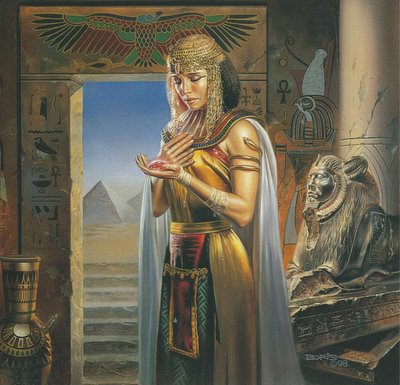 William S. Burroughs tells the story of meeting a ferry captain named Clark who claimed to have sailed the same route without an accident for 23 years. That very day, however, the ferry sank. Later that day, Burroughs was thinking about Clark's ferry accident when he heard that a Flight 23 on a New York-Miami route had crashed. The pilot's name for the flight had also been Clark.
William S. Burroughs tells the story of meeting a ferry captain named Clark who claimed to have sailed the same route without an accident for 23 years. That very day, however, the ferry sank. Later that day, Burroughs was thinking about Clark's ferry accident when he heard that a Flight 23 on a New York-Miami route had crashed. The pilot's name for the flight had also been Clark.What is the relationship between "coincidences" and synchronicity in our lives? To answer this, first we need to consider what "coincidences" are.
Coincidence: William Shakespeare was born on an April 23, died on an April 23 and had his first portfolio published in 1623. His first play, Titus Andronicus, was performed on a January 23.
But are there deeper meanings to any of this? Consider the 23rd book of the Old Testament -the Book of Psalms. Psalm 23 is the famous "Lord is my Shepherd" psalm. 23 times 2 is 46, and the 46th word of Psalm 46 is "shake." The 46th word from the end of Psalm 46 is "spear." Is this a sly reference like some have supposed that Shakespeare translated the King James version of the Book of Psalms? Or was this a tribute to the Bard, a 17th Century "shout out" by the real translator?
Next, what is synchronicity? In his classic work, Synchronicity: An Acausal Connecting Principle, Carl Jung defined synchronicity as "...a meaningful coincidence of two or more events, where something other than the probability of chance is involved."
The classic example of synchronicity concerns one of Jung’s patients, a woman whose highly rational approach to life made any form of treatment particularly difficult. On one occasion, the woman related a dream in which a golden scarab had appeared. Jung knew that such a beetle was of great significance to the ancient Egyptians, for it was taken as a symbol of rebirth. As the woman was talking, the psychiatrist in his darkened office heard a tapping at the window behind him. He drew the curtain, opened the window, and in flew a gold-green scarab, also called a rose chafer. Jung showed the woman "her" scarab and from that moment the patient’s excessive rationality was pierced and their sessions together became more profitable.
Another well-known example of synchronicity involves plum pudding. In 1805, Émile Deschamps was treated to some plum pudding by the stranger Monsieur de Fontgibu. Ten years later, he encounters plum pudding on the menu of a Paris restaurant, and wants to order some, but the waiter tells him the last dish has already been served to another customer, who turns out to be M. de Fontgibu. In 1832, Deschamps is again at a diner, and is once more offered plum pudding. He recalls the earlier incident and tells his friends that only M. de Fontgibu is missing to make the setting complete, and in the same instant the now senile M. de Fontgibu enters the room by mistake.
Jung articulated his synchronicity theory primarily in terms of the I Ching. According to the philosophy behind the I Ching, every moment has its own character, and everything that occurs in that moment shares in that unique quality. The "inner reality" of our psychological state corresponds to the "outer reality" of events taking place in our surroundings at the same time. Jung employed the I Ching as a device to discover the external world as the psychic "atmosphere in which we live," and he began to use synchronistic events as an essential element in his practice of analysis.
None of this would be news to a Zen master. In Zen, it is recognized that the "inner reality" of our psychological state is not governed by the "outer reality," but actually the other way around. According to a sutra:
"This moment arises from mind,
This moment itself is mind."
Everything is part of the present moment ("everything is connected" as Dennis Hoffman's character would say in the movie "I [Heart] Huckabees"), and it is all a manifestation of mind. Synchronicities occur if one looks for them, but they occur because one is looking for them. The mind is running the whole show, and one can directly perceive this during zazen. With the mind stilled, everything else in the whole universe slows down, and as the mind once again engages itself, the universe reappears. This may sound strange, but try it and see for yourself.
Is there meaning to the synchronicities that occur in your life? Yes, if you want them to be meaningful; no, if you don't want them to be.
After all, it's all you.

4 comments:
I am resistig the tempation to demonstrate all the kooky conclusions that can be reached by gematria.
Hmmmm. As a class of experiences, would sychronicity, for some, be categorized as "any experience that unsettles you by demonstrating that some of your 'rules of reality' are not complete or just plain wrong"?
Thank you.
I saw a short film on the plum pudding story at the London Raindance Film Festival.
Post a Comment